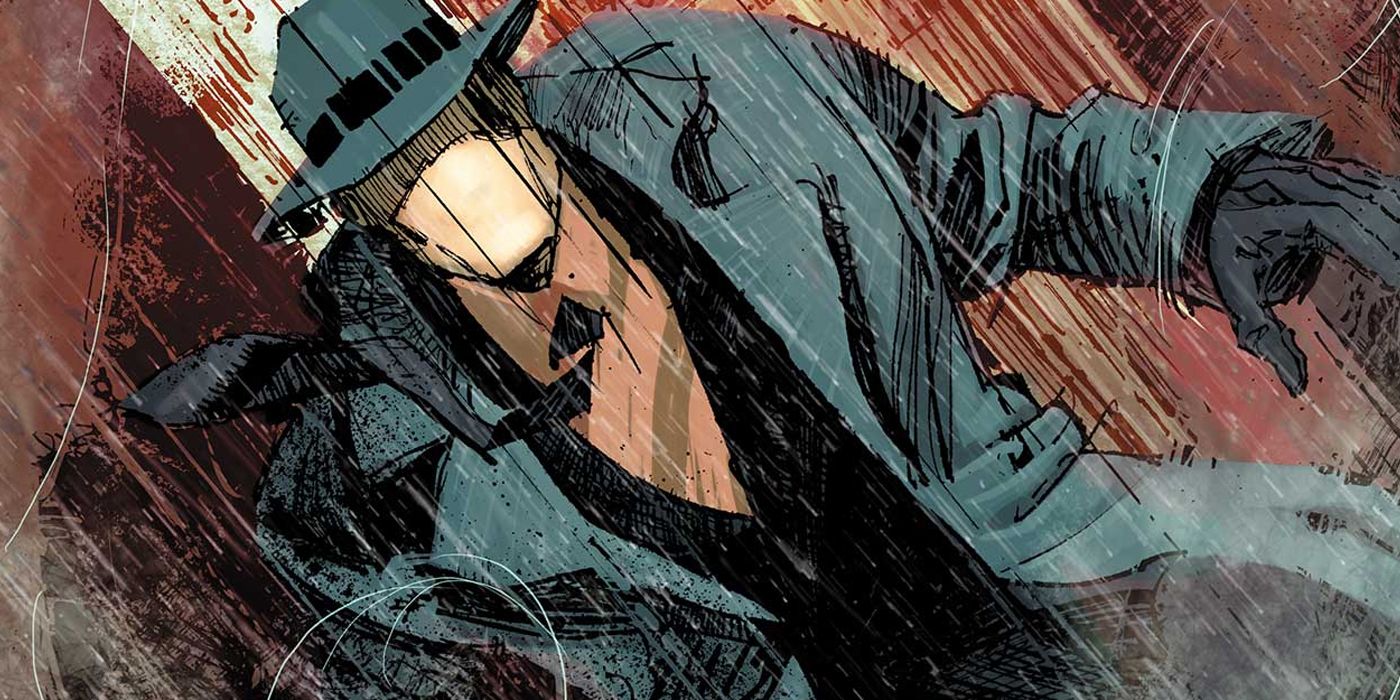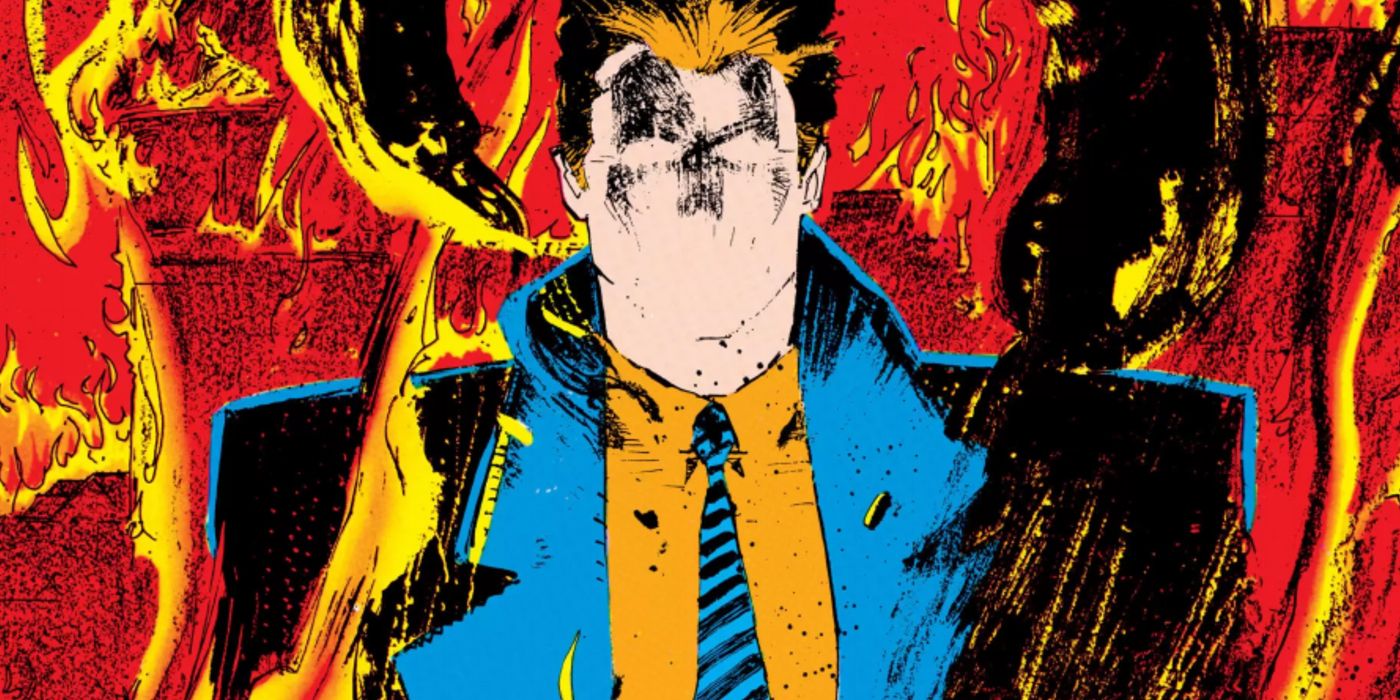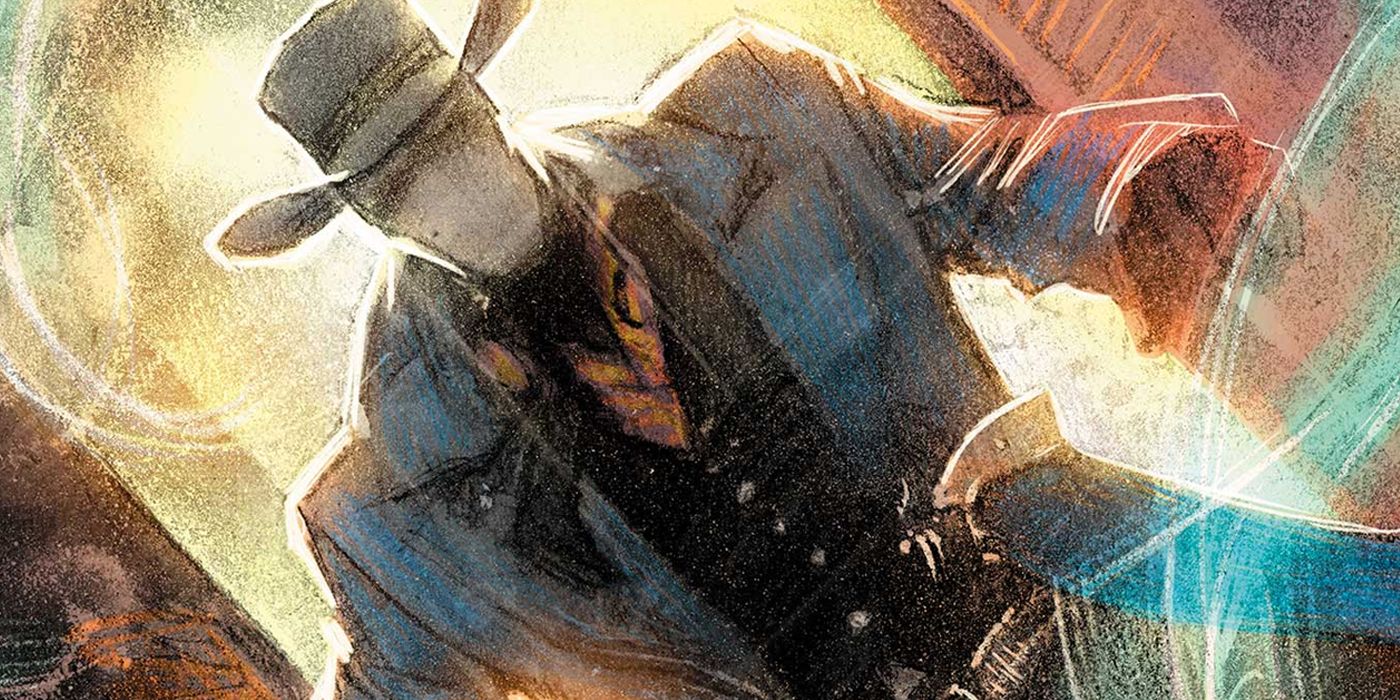While many comic book creators have brought the adventures of The Question, DC's conspiracy-theorist superhero, to visual life, none perhaps has left as enduring a mark on the character than the creative team behind the 1987 relaunch. Helmed by writer Denny O'Neil and penciller Denys Cowan, joined by inker Rick Magyar and colorist Tatjana Wood, with haunting covers by Cowan and Bill Sienkiewicz, the universally acclaimed run firmly integrated Steve Ditko's Charlton Comics character into the DC Universe and redefined Vic Sage for decades to follow.
Years later, Cowan and Sienkiewicz have reunited for the DC Black Label miniseries The Question: The Deaths of Vic Sage, with writer Jeff Lemire. The third issue is out now. In the meantime, the comics community has mourned the passing of O'Neil at age 81. In an exclusive interview with CBR, Cowan reflected on his work illustrating the landmark Question series, completely redefining the character, revisiting Vic Sage once again and shared the lessons he learned from working with O'Neil over the years.
CBR: How did you get on The Question and working with Denny O'Neil?
Denys Cowan: Dick Giordano. It was a Friday afternoon in August 1986, I'm up at DC Comics -- I don't know why I was there, I was probably delivering something like V or The Vigilante, the fill-ins they had me do, like Starfire. They would give me two issues to kill that book off and they would give me another one. [Laughs] So I got V and The Vigilante, anything with a "V," they gave me.
So, anyway, I'm up there and Dick Giordano called me into his office, he was the editor-in-chief at the time. He calls me in, sits me down and asks if I had ever heard of The Question and I said "Yeah, you mean the character Steve Ditko and Alex Toth drew? -- that's all I knew about him -- and Dick was like "Yeah, yeah, that Steve Ditko character! The artist we were going to have draw it can't do it. He has deadline problems, and he can't take this book on. Would you be willing to give it a try? I think you can do it." So they didn't give me the script but they told me to think about what I wanted to do. They didn't give me the concept, or whatever, but told me to think about it and come in next Monday.
So I came in that next Monday very eagerly ready to draw this book, and he takes me to Mike Gold's office. Mike Gold is the editor, and I walk into his office and meet him. We're cool and then he introduces me to the writer: Denny O'Neil. Denny was my editor on Power Man & Iron Fist. I think I gave Denny fits on Power Man & Iron Fist because I was like a punk kid and didn't know anything, and he was trying to help me and teach me how to do comics; I wasn't listening to anybody. And then I go on to become a "superstar" wherever I was, ready to do The Question and I ran right back into the guy who was the bane of my existence at Marvel and, not only that, he was writing the book and I was like "Holy crap..."
And so began three years of not the easiest time of my life, but probably the time that I learned the most and the time that I needed to have. That's how I ended up doing The Question: Dick Giordano asked me and then I got paired up with Denny O'Neil, and I spent three years trying to make those scripts work. They worked anyway, but I was trying to visually portray what Denny wanted to do. And at the time, we didn't think we were doing anything groundbreaking to tell you the truth. I was doing The Question, Brian Bolland was doing Camelot 3000, Kyle Baker was doing The Shadow, we were just doing our stuff. That's what was being done at the time, and I just happened to be doing it. It wasn't until later that I realized "Hey, we really did some stuff with this character!"
Now you're doing The Deaths of Vic Sage with Jeff Lemire and Bill Sienkiewicz. I remember, the last time we spoke, you mentioned you're not trying to rehash what you did but push forward your style and your approach. How is it revisiting the character with that in mind?
It's interesting because I just finished the fourth issue a couple of days ago. I was working on the last page when Denny died; it was really something. I was drawing this big image of The Question running toward the reader saying something like "I'm The Question and I'm back" or something like that with that dynamic pose running towards the reader, and I was drawing that the night Denny died because I got up the next morning and he was gone and I was thinking "This is so strange..."
I tried to push those four [issues] doing a different style in each [issue]. Whether people realize that, I have no idea. [Laughs] And hopefully I was able to push the art and push what I did a little further than what I did before, especially with this character. This was a chance to draw him again for over 200 pages and to get it right, so hopefully, I did this time. Also, you want to draw stuff that's good enough that Bill wants to ink it. [Laughs] So that's why with every issue, with every page, you push yourself a little bit more and to do a little bit more so I'm worthy of my collaborators Jeff Lemire and Bill Sienkiewicz; they're all bringing their A-game so I can do no less.
You mentioned Denny was a mentor to you. I was wondering if you could elaborate on that and your relationship with Denny and his legacy.
My relationship was really interesting, it was two or three parts. The first part of my relationship with Denny was when he was my editor on Power Man & Iron Fist, and Jim Shooter walked me into Denny's office and introduced us. I was happy to meet him; I knew who he was. But I was very full of myself during the Power Man & Iron Fist years, you couldn't tell me anything. Denny was very patient with me those couple of years I did that book; he was great. Like I said, I probably irritated him to no end with my endless questions and everything else. He wasn't particularly friendly towards me, but he wasn't not friendly with me. I was one of his artists and he hoped I would get the book out on time and I never did, he had to figure out how to make that work, and he did. He was great.
Three years later, I run into him again, we're working on The Question, and he's the writer on the book. I'm working with Denny on a whole different level than an editor, I'm working with his scripts, and Mike Gold was the editor. I talked to Denny every week, I would see him and talk about what we were doing and all that stuff. Never any harsh words, again, he was a thorough professional, the only thing he wanted was for me not to eff up his work, his scripts. [Laughs] I tried not to do that and, when I did, I heard about it, not only from Denny but from Mike Gold too, so it was three years of really kicking my ass.
Denny's a really benevolent dude, great person, a mentor for real because those are three crucial years of my life. It was, like, five years of that Denny was a part of my life in a really significant way and changed me. He's responsible for my career in a lot of ways because these were my formative years. If I was going to mess up, that would be it, or, I was going to make it and be okay. Denny made sure that I made it, let's put it that way. And I wasn't going to waste my own time or anybody else's time. I'd make good comics, if nothing else. Hopefully, he made me a better person too, in terms of being a good professional and a good human being; Denny was a great human being.
Had you kept in touch with Denny at all?
So the third part of the story is after The Question, I go off and do Milestone and Deathlok and all that, and I didn't really see Denny or was in touch with him at all. And then in 2018, I think it was in Baltimore, they have the Ringo Awards -- you can see this on YouTube -- they asked me in Baltimore if I'd be willing to give Denny a lifetime achievement award. I hadn't seen Denny in about 20+ years since we did The Question at conventions or anything, we traveled in different circles. He didn't know how I felt about him up to that point because we hadn't spoken, we both just busy living our lives. So I agreed to do it and, the night of the award, I'm thinking "What am I going to tell Denny? What am I going to tell the people?"
I get up and -- again, you can watch this on YouTube -- I get up and I told people the truth. I told them about my relationship with Denny from Power Man & Iron Fist to The Question, everything. And now we find ourselves here, and I found that the real lesson that Denny was trying to teach me had nothing to do with drawing comic books but everything to do with being professional and being a good human being and how I treated my fellow professionals, my fellow human beings and how I existed on this Earth. Those are the things that I got from Denny and I had the chance that night in Baltimore at the Ringo Awards to tell him and tell everybody just how much he meant to me and he meant a lot. He meant a lot to a lot of people, and I was lucky because I got to work with him and really help express the things he wanted to talk about, that were important in his life during the time we were doing The Question. It was an honor.
Written by Jeff Lemire and illustrated by Denys Cowan and Bill Sienkiewicz, The Question: The Deaths of Vic Sage #3 is on sale now from DC.



